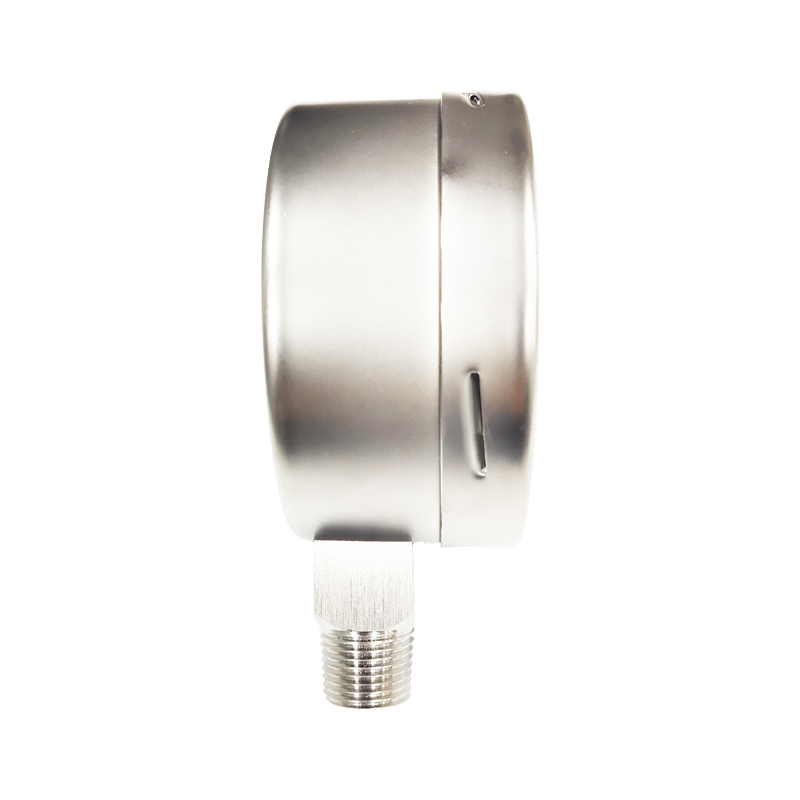
Dec . 27, 2024 10:20 Back to list
sanitary differential pressure gauge
Understanding Sanitary Differential Pressure Gauges Importance and Applications
Sanitary differential pressure gauges play a crucial role in industries where hygiene and cleanliness are paramount, such as food and beverage, pharmaceuticals, and biotechnology. These specialized instruments help measure the pressure difference between two points in a system and are designed with stringent sanitary standards to ensure that they do not contaminate the process. In this article, we will delve into what sanitary differential pressure gauges are, their importance, and their various applications.
What is a Sanitary Differential Pressure Gauge?
A sanitary differential pressure gauge is an instrument specifically designed to measure the difference in pressure between two points in a process while maintaining sanitary conditions. Unlike standard gauges, which may use materials and designs that can harbor bacteria or contaminants, sanitary gauges are constructed from materials such as stainless steel that are resistant to corrosion and easy to clean. They often feature smooth surfaces with no crevices, allowing for effective cleaning and sterilization, making them ideal for use in cleanroom environments and processes that require adherence to strict hygiene standards.
Importance of Sanitary Differential Pressure Gauges
1. Quality Control In food and beverage production, maintaining consistency and quality is essential. Differential pressure measurements can indicate blockages in filters, changes in flow rates, or pressure variations in processing equipment, allowing operators to take corrective actions before any material is compromised.
2. Process Optimization Monitoring pressure differences across specific components helps in the optimization of processes. By understanding how pressure changes affect flow rates and system performance, operators can adjust parameters to improve efficiency and reduce waste.
3. Regulatory Compliance Industries such as pharmaceuticals are often subjected to strict regulatory oversight. Sanitary differential pressure gauges contribute to compliance with these regulations by ensuring that processes remain within specified limits. Documentation provided by these gauges can serve as evidence during audits and inspections.
sanitary differential pressure gauge

4. Safety Assurance In many industrial processes, significant pressure differentials can lead to hazardous situations if left undetected. Sanitary differential pressure gauges can serve as an early warning system, alerting operators to dangerous conditions that could compromise safety.
Applications of Sanitary Differential Pressure Gauges
1. Food Processing In the food industry, these gauges are used to monitor filters, vessels, and pipelines. By keeping an eye on differential pressure, manufacturers can ensure that their filtration systems are operating effectively to prevent contamination and maintain product quality.
2. Pharmaceuticals In the pharmaceutical industry, the need for a sterile environment is crucial. Sanitary differential pressure gauges are employed in various applications, including monitoring the pressure of clean rooms and bioreactors, ensuring that these environments remain uncontaminated.
3. Biotechnology Biotechnological processes often involve fermentation and other biological reactions that require strict control over environmental conditions. Differential pressure measurements allow for the monitoring of fluid levels and the detection of blockages, ensuring that processes can proceed smoothly.
4. Water Treatment In water treatment facilities, sanitary differential pressure gauges are used to monitor the status of filters and other equipment to ensure that water quality remains high and the treatment process is efficient.
Conclusion
Sanitary differential pressure gauges are vital tools in industries where cleanliness and hygiene are non-negotiable. They provide essential data that ensures product quality, regulatory compliance, process optimization, and safety assurance. With applications spanning various sectors, from food processing to pharmaceuticals and biotechnology, these gauges support a broad range of operations, helping industries maintain the high standards required for safe and effective production. Choosing the right sanitary differential pressure gauge is crucial, as it can have a lasting impact on operational efficiency and product integrity. Understanding their role and functionality can significantly benefit operators in maintaining the smooth operation of their processes while ensuring the health and safety of the end products.
-
High-Quality Pressure Gauge on Fire Extinguisher - Reliable Water Fire Extinguisher Pressure Gauge Suppliers & Exporters
NewsJul.08,2025
-
High-Quality Water Pressure Differential and Gauge Kit Reliable Manufacturers & Competitive Quotes
NewsJul.08,2025
-
High-Precision Digital Diaphragm Pressure Gauge – Reliable Manufacturer & Competitive Quotes
NewsJul.07,2025
-
Wholesale Diaphragm Pressure Gauge Supplier - Premium Quality & Competitive Price
NewsJul.07,2025
-
Digital Diaphragm Pressure Gauge Reliable & Precise Measurement Top Manufacturers Quotes
NewsJul.06,2025
-
High Accuracy Piston Type Differential Pressure Gauge - Reliable Manufacturers & Competitive Quotes
NewsJul.06,2025
